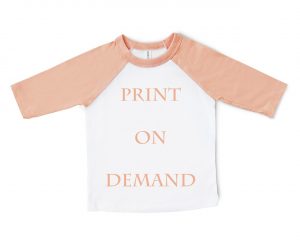
A marketing funnel represents the way your customers connect with you.
Marketing funnels outline the steps needed to convert a lead from the initial stages of learning about your business to the final stages of making a purchase.
When thoroughly analyzed, a marketing funnel exposes what your company needs to do to influence buyers at various stages. Examining your funnels could raise sales, customer loyalty, and brand awareness.
What is a marketing funnel?
From a marketing (and sales) view, the marketing funnel is a visual depiction of the process of turning leads into customers. Marketers cast a wide net to catch as many tips as possible, then nurture potential customers progressively through the purchase decision, reducing these options at each level of the funnel.
In a perfect world, your leads would all become customers, and your marketing funnel would resemble a marketing cylinder. Although this is not the case for most businesses, it is a marketer’s responsibility to turn as many leads into customers as possible to increase the funnel’s circularity.
It is essential to identify that there is no one good funnel; different versions have different numbers of “stages,” various names for each, and other actions carried out by the company and the client for each. To make this valuable information to as many marketers as possible, we’ve done our best to extract the most popular and significant funnel phases, terms, and actions in the image below.
What are the benefits of a marketing funnel?
The consumer experience is streamlined through marketing funnels, making it more straightforward for firms to follow. These solutions define their clients’ decision-making steps and the actions they plan to take at each stage.
Almost any customer connection may be compared to a marketing funnel. It would be best to have a marketing funnel to boost online sales, get clients into your brick-and-mortar location, or gather affiliate clicks. A funnel is a practical tool for highlighting each step of your client relationship.
The fact that marketing funnels are measurable is their most significant benefit. Your funnel shows you where you’re losing customers so you can change your approach. As an illustration, you should enhance your brand awareness campaign if you lose consumers before they complete the second step.
What is the importance of a marketing funnel?
Adopting a marketing funnel has several benefits that cannot be emphasized. And last, it may alter the dynamic of your business. A marketing funnel can be helpful to you in the following ways:
Picking a marketing strategy
A marketing funnel is built on the customer journey. Knowing the latter helps you determine what strategies and resources you can use to keep prospects engaged with your brand and when and why they leave before making a purchase.
Staying consistent with your promotion
A marketing funnel takes the guesswork out of deciding what to do next to draw in and keep customers. Make a marketing plan for each sale funnel stage, and connect with leads to persuade them to make a purchase.
Increasing your sales
If you don’t have a funnel, you lose money if a potential customer doesn’t buy from you immediately. They walk away, rejecting your offer. If you have a marketing funnel, you may nurture prospects until they are prepared to make a purchase.
Making it easier to close the deals
The marketing and sales groups must work together to close deals in B2B. Deep insights into lead behavior are provided by marketing funnels, which provide your salespeople with extra suggestions on how to close the deal.
Saving time and effort
You may automate your marketing efforts by being aware of the stages of your client’s journey and having an action plan for each one. It helps you obtain better results while saving you a lot of time.
Predicting future sales
You may better analyze the results of your marketing efforts by using marketing funnels. Knowing the lead conversion rate for each phase, you can predict how many of your leads will ultimately convert into paying customers.
Retaining customers
A post-purchase marketing campaign might help keep customers interested and sometimes entice them to make another buy. Five times as much money goes into client retention as new customer acquisition.
Stages in Marketing Funnel
Your method and, most significantly, your customers’ actions will define the many stages in a marketing funnel. Some people make it straightforward by dividing the funnel into the top, middle, and bottom sections.
The most effective marketing funnel in the modern world comprises the following phases.
- Awareness – A prospective customer discovers your business.
- Interest – Leads gain more knowledge about your business and its products.
- Consideration – As leads discover more about your product or service, they transform into prospects.
- Intent – Prospective customers express an interest in purchasing from you.
- Evaluation – Customers decide whether or not to buy from you in the end.
- Purchase – The last step is when a potential client agrees to work with you.
Loyalty and advocacy are two more stages that some marketers incorporate. The first is taking steps to turn a one-time client into a repeat one, while the second entails having your customer become a brand evangelist. Post-purchase behavior is the umbrella term for these stages when they are combined.
Working with post-purchase steps is especially important in the B2B market since there are fewer prospective customers and a lengthier, more involved buying process. Keep reading more about the differences between B2B and B2C marketing funnels.
Wrapping Up
Almost all there is to know about marketing funnels have been discussed. Here is a summary:
When a visitor to your website does the desired action, it is a conversion (for example, sign up, make a purchase, fill out a form, etc.). A funnel is used to trace the actions that led to that conversion. For instance, e-commerce businesses entice customers to make purchases through their websites.



